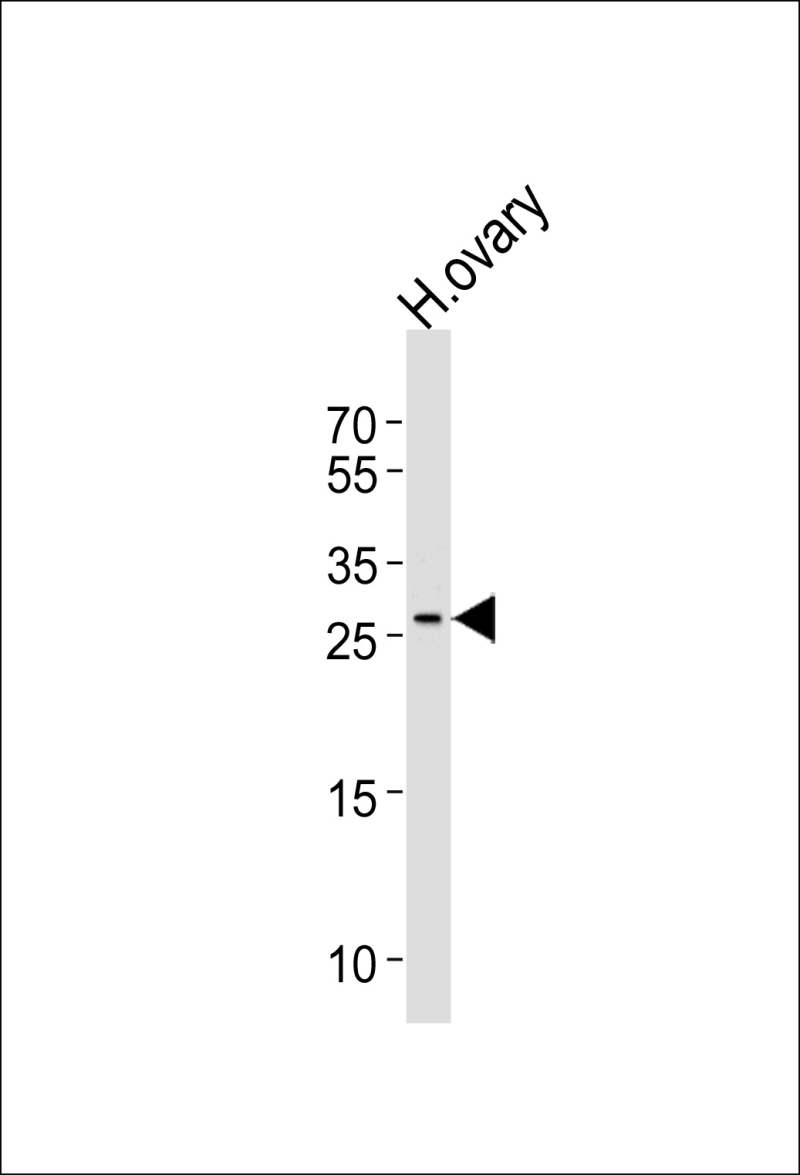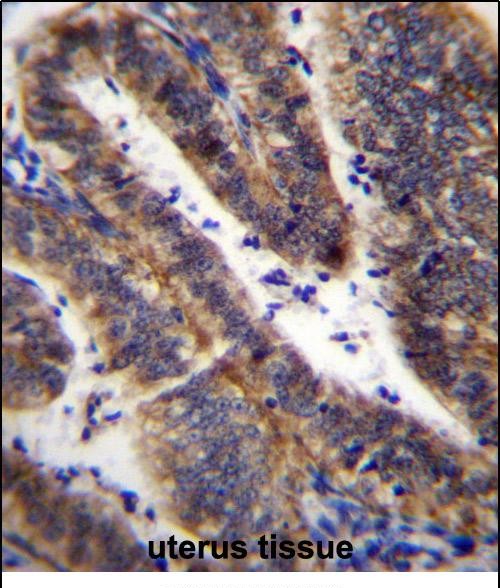

| WB | 1/1000 | Human,Mouse,Rat |
| IF | 咨询技术 | Human,Mouse,Rat |
| IHC | 1/100-1/500 | Human,Mouse,Rat |
| ICC | 技术咨询 | Human,Mouse,Rat |
| FCM | 咨询技术 | Human,Mouse,Rat |
| Elisa | 咨询技术 | Human,Mouse,Rat |
| Aliases | LRRN4 C-terminal-like protein, LRRN4CL |
| Entrez GeneID | 221091 |
| WB Predicted band size | 25.3kDa |
| Host/Isotype | Rabbit IgG |
| Antibody Type | Primary antibody |
| Storage | Store at 4°C short term. Aliquot and store at -20°C long term. Avoid freeze/thaw cycles. |
| Species Reactivity | Human |
| Immunogen | This LRRN4CL antibody is generated from rabbits immunized with a KLH conjugated synthetic peptide between 117-146 amino acids from the Central region of human LRRN4CL. |
| Formulation | Purified antibody in PBS with 0.05% sodium azide. |
+ +
The LRRN4CL (Leucine-Rich Repeat Neuronal 4C-Like) protein is a relatively understudied member of the leucine-rich repeat (LRR) superfamily, characterized by repetitive sequences involved in protein-protein interactions. Primarily expressed in the nervous system, LRRN4CL is implicated in neuronal development, synaptic plasticity, and cell adhesion. Its structural features, including extracellular LRR domains and a transmembrane region, suggest roles in signal transduction or cell surface recognition. Dysregulation of LRR family proteins has been linked to neurodevelopmental disorders and cancer, though LRRN4CL's specific pathophysiological roles remain unclear.
Antibodies targeting LRRN4CL are primarily used in research to investigate its expression patterns, subcellular localization, and interactions. These tools enable detection via Western blotting, immunohistochemistry, and immunofluorescence, aiding studies in neuronal differentiation, cancer biology (e.g., glioblastoma or neuroblastoma models), and potential biomarker exploration. Commercial antibodies are typically raised against specific epitopes in its extracellular or intracellular domains. Validation remains challenging due to limited characterization data and cross-reactivity risks with homologous LRR proteins. Recent studies have begun exploring LRRN4CL's role in immune modulation, expanding its potential relevance beyond neuroscience. However, the antibody's utility is currently confined to exploratory research, pending deeper functional insights into the protein itself.
×